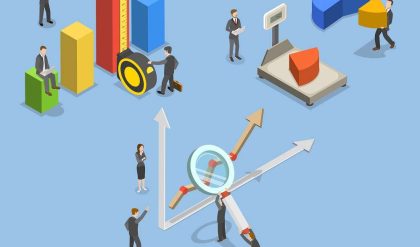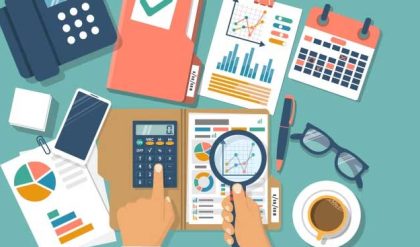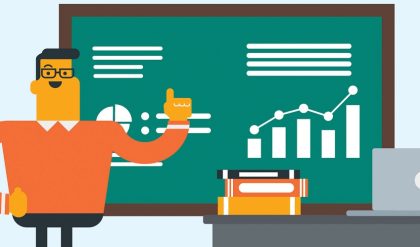Economic development has different meanings in different contexts. In rich countries, it is pretty much equated with growth. Picture the urban developer who makes skyscrapers sprout from vacant lots in a blighted city core. Politically, development projects in high-income countries often are motivated by some of the same goals that inspire development projects in poor countries, particularly the creation of new jobs, incomes, and tax revenues.
Their ultimate aim, however, is likely to be growth. Most development economists today would say that economic development is not equivalent to growth, although it is difficult to achieve development goals without growth. Development projects around the world focus on concrete outcomes related to poverty, malnutrition, inequality, and health. Development is about satisfying basic physical needs like nutrition, shelter, and clothing, and about the development of the mind (and of course people’s earnings potential) through education. Projects also focus on the environment, conservation, and sustainable resource use; on human rights, gender and ethnic equity, and even government corruption All of these questions can be vital not only to determining who reaps the benefits of economic growth, but also to understanding growth itself.
Herein lies a fundamental difference in the way we tend to look at economics and politics in rich and poor countries. In high-income countries (not to mention our microeconomics courses), economic efficiency and equity tend to be viewed as separate questions. The efficient allocation of resources is critical to ensure that economies produce the biggest possible economic pie, given the constraints they face limited resources and technologies).
Efficiency is the primary focus of the vast majority of our economics classes. What about equity? How the pie gets distributed is usually an afterthought in economics—something more in the domain of politics than economics. Think about the economics courses you’ve taken. The textbook view is that efficiency and equity are sequential, or recursive, problems: first grow the pie, then, once that’s done, think about how it gets distributed (or step back and let the market decide). Clearly, there’s an important separability assumption here: that efficiency can be achieved regardless of how income is distributed. Is this a reasonable assumption? In a competitive market equilibrium, there will be different outcomes depending upon what the initial distribution of wealth looks like. But provided the basic assumptions of the competitive model (which you learned in your introductory economics courses) hold, all will be efficient in the Pareto sense: you cannot make anyone better off without making someone else worse off. If you ever studied an Edgeworth box, you’ve seen how economists show this. The separability of equity and efficiency was reinforced by the Nobel laureate Ronald Coase, who argued that bargaining will lead to an efficient outcome regardless of the initial allocation of property rights, even in the case of externalities (a cost or benefit not reflected in prices, like pollution). According to Coase, as long as we can costlessly negotiate it doesn’t matter whether you have the right to smoke or I have the right to breathe clean air.
Once we have finished bargaining with each other, the amount of smoke in the air will be the same. This view has achieved the status of a theorem: Coase’s Theorem. If efficiency and equity are truly separate issues, then there is not much room for economic policy, nor much reason for efficiency-minded economists to worry about equity. (Of course, even economists might worry about equity for other [i.e., humanitarian] reasons.) If only things were that simple! Alas, negotiation is never costless (and often prohibitively expensive). For this and many other reasons, a great deal of development economists’ effort goes into discovering how equity and efficiency are intertwined, especially in poor countries. How assets are distributed clearly affects efficiency if the following conditions hold:
• Banks are unwilling to loan money to small farmers.
• Poor people cannot get insurance to protect themselves against crop loss or sickness. Taylor –
• Poverty and malnutrition prevent kids from growing up to become productive adults.
• Access to markets for the stuff people produce, the inputs they use, and the goods they demand is different for the poor and rich.
• The ability to get a job depends on who you are, not on how productive you are.
In these and many other cases, the separability of equity and efficiency breaks down. A person’s capacity to produce (or even consume) efficiently depends upon how wealth is distributed to start out with because the basic assumptions of competitive markets often don’t hold for the poorest members of society. A rich farmer can produce where the market price equals the marginal cost of producing a crop, the basic requirement for profit maximization and efficiency. But if a poor farmer lacks the cash to buy fertilizer, and no bank will lend to her, she will not be able to produce as efficiently as the large farmer. This implies that efficiency depends on how income is distributed to begin with, which is an important departure from standard assumptions in economics. The conditions under which equity affects efficiency are many, and they permeate the economies and societies of poor countries.
Development economics, more than anything else perhaps, is the study of economies in which equity and efficiency are closely interrelated. This opens up a whole realm of possibilities for policy and project interventions to increase economic efficiency as well as equity. More often than not, equity and efficiency are not only complementary; they are inseparable.





